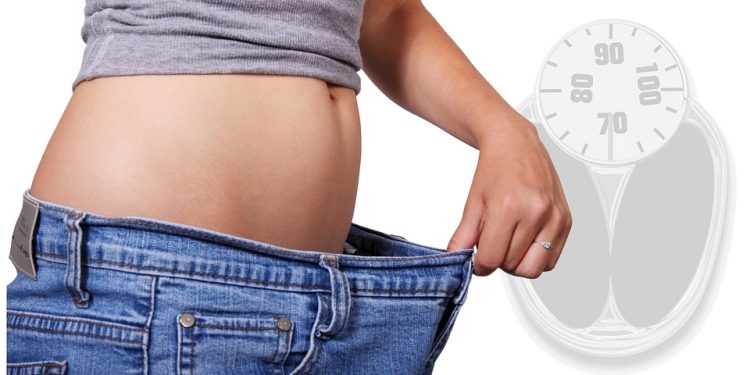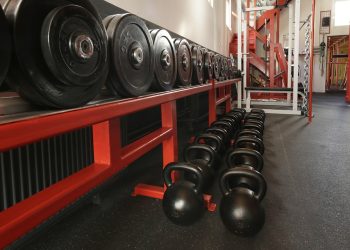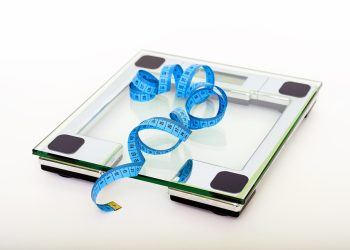Understanding the Importance of Tracking Weight Loss
Embarking on a weight loss journey is a significant commitment. But how do you know if your efforts are actually paying off? That’s where tracking weight loss comes in. It’s not just about seeing a number on a scale; it’s about understanding your body, identifying patterns, and staying motivated on your path to a healthier you.
Tracking provides valuable insights into what works and what doesn’t. It helps you adjust your diet and exercise plan accordingly, preventing frustration and plateaus. More than that, it serves as a visual representation of your progress, boosting your confidence and encouraging you to keep going, even when faced with challenges.
Easy and Effective Methods for Tracking Weight Loss
Fortunately, tracking your weight loss doesn’t have to be complicated. Here are some simple, yet effective methods:
1. The Classic: Weighing Yourself Regularly
This is the most straightforward method. However, consistency is key. Here’s how to do it right:
- Choose a consistent time: Weigh yourself at the same time each day or week, preferably in the morning after using the restroom and before eating or drinking.
- Use the same scale: Different scales can give different readings. Stick to one reliable scale for consistency.
- Track your weight: Keep a record of your weight in a notebook, spreadsheet, or weight loss app.
- Don’t obsess over daily fluctuations: Weight can fluctuate due to factors like hydration levels and sodium intake. Focus on the overall trend over time.
Example: Weigh yourself every Monday morning and record the weight in a spreadsheet. At the end of the month, you can easily see your progress.
2. Measuring Body Circumference
The scale isn’t the only indicator of progress. Measuring body circumference can reveal changes in body composition, even if the scale doesn’t budge. This is especially helpful if you’re building muscle while losing fat.
- Key areas to measure: Waist, hips, chest, and thighs.
- Use a flexible measuring tape: Ensure the tape is snug but not too tight.
- Measure at the same spots each time: Use landmarks like your belly button or hip bone to ensure consistent measurement points.
- Record your measurements: Similar to tracking weight, keep a log of your measurements.
Example: Measure your waist circumference every two weeks. Even if your weight remains the same, a decrease in waist circumference indicates fat loss.
3. Taking Progress Photos
Photos provide a visual record of your transformation. They can be incredibly motivating, especially when you feel discouraged. The subtle changes in your body shape may not be noticeable in the mirror, but they become apparent in progress photos.
- Wear the same clothes: Choose form-fitting clothing that reveals your body shape.
- Use the same lighting and background: Consistency is key for accurate comparison.
- Take photos from multiple angles: Front, side, and back views.
- Date and label your photos: This will help you track your progress over time.
Example: Take a photo every month in the same outfit. You’ll be surprised at the changes you see over time.
4. Tracking Calorie Intake and Macros
Weight loss is fundamentally about creating a calorie deficit – burning more calories than you consume. Tracking your calorie intake helps you ensure you’re staying within your target range. Macro tracking (protein, carbohydrates, and fats) can further optimize your diet for fat loss and muscle gain.
- Use a food tracking app: MyFitnessPal, Lose It!, and Cronometer are popular choices.
- Be accurate: Weigh your food and carefully log everything you eat and drink.
- Set realistic calorie goals: Consult with a registered dietitian or use an online calculator to determine your daily calorie needs.
- Monitor your macro ratios: Experiment to find the macro ratio that works best for you. A common starting point is 40% carbohydrates, 30% protein, and 30% fats.
Example: Track your food intake for a week using MyFitnessPal to see how many calories you’re actually consuming. Then, adjust your diet to create a calorie deficit of 500 calories per day to lose 1 pound per week.
5. Monitoring Exercise and Activity Levels
Exercise plays a crucial role in weight loss and overall health. Tracking your workouts and activity levels helps you stay consistent and ensures you’re burning enough calories.
- Use a fitness tracker: Fitbits, Apple Watches, and other wearable devices can track your steps, activity levels, and heart rate.
- Log your workouts: Record the type of exercise, duration, and intensity.
- Set daily activity goals: Aim for at least 10,000 steps per day or 30 minutes of moderate-intensity exercise.
- Find activities you enjoy: This will make it easier to stay motivated and consistent.
Example: Use a Fitbit to track your steps and aim for 10,000 steps per day. Also, log your three weekly gym sessions, including the exercises you performed, sets, and reps.
6. Journaling Your Feelings and Progress
Weight loss is as much a mental journey as it is a physical one. Keeping a journal allows you to reflect on your progress, identify emotional triggers for overeating, and develop coping strategies.
- Record your thoughts and feelings: Write about your emotions, motivations, and challenges.
- Track your progress: Note any non-scale victories, such as increased energy levels or improved sleep quality.
- Identify triggers for overeating: Pay attention to situations, emotions, or environments that lead to unhealthy eating habits.
- Develop coping strategies: Create a plan for dealing with triggers and cravings.
Example: Keep a journal to document your feelings after each workout and to log any cravings you experience throughout the day. Use this information to identify patterns and develop strategies to overcome challenges.
Choosing the Right Tracking Method for You
The best tracking method is the one that you can consistently stick to. Experiment with different methods and find what works best for your personality, lifestyle, and goals. You may even find that a combination of methods is most effective.
Consider the following factors when choosing a tracking method:
- Your personality: Are you detail-oriented or do you prefer a more relaxed approach?
- Your lifestyle: How much time and effort are you willing to dedicate to tracking?
- Your goals: What are you hoping to achieve with weight loss tracking?
Remember, tracking is a tool to help you achieve your goals, not a burden to add to your stress. Be patient with yourself, celebrate your successes, and learn from your setbacks.
Tips for Staying Consistent with Tracking
Consistency is crucial for effective weight loss tracking. Here are some tips to help you stay on track:
- Make it a habit: Integrate tracking into your daily routine.
- Set reminders: Use your phone or calendar to remind yourself to weigh in, measure, or log your food.
- Find an accountability partner: Share your progress with a friend, family member, or online community.
- Reward yourself for consistency: Celebrate your successes with non-food rewards.
- Don’t get discouraged by setbacks: Everyone has off days. Just get back on track as soon as possible.
The Power of Data: Analyzing Your Tracking Results
Once you’ve been tracking your weight loss for a few weeks or months, it’s time to analyze your results. Look for patterns and trends in your data to identify what’s working and what’s not.
- Identify trends: Are you consistently losing weight, gaining weight, or plateauing?
- Analyze your diet: Are you consuming too many calories, carbs, or unhealthy fats?
- Evaluate your exercise routine: Are you burning enough calories and challenging your body?
- Adjust your plan accordingly: Make changes to your diet, exercise, or lifestyle based on your findings.
Remember that weight loss is not a linear process. You’ll likely experience ups and downs along the way. Don’t get discouraged by occasional setbacks. The key is to stay consistent, learn from your mistakes, and keep moving forward.
Non-Scale Victories: Celebrating Other Achievements
While the scale is a useful tool, it’s important to remember that it’s not the only measure of success. Celebrate other achievements, such as:
- Increased energy levels
- Improved sleep quality
- Better mood
- Clothes fitting better
- Increased strength and endurance
- Reduced cravings
- Improved confidence
Focusing on these non-scale victories can help you stay motivated and appreciate the many benefits of a healthy lifestyle, even if the scale isn’t moving as quickly as you’d like.
When to Seek Professional Help
While tracking weight loss can be a valuable tool, it’s important to recognize when to seek professional help. Consider consulting with a registered dietitian, certified personal trainer, or doctor if:
- You have underlying health conditions that may affect your weight loss efforts.
- You’re struggling to lose weight despite following a healthy diet and exercise plan.
- You’re experiencing extreme hunger or cravings.
- You’re developing unhealthy eating habits or obsessive thoughts about food and weight.
A qualified professional can provide personalized guidance and support to help you achieve your weight loss goals safely and effectively.
Conclusion
Tracking weight loss is a powerful tool for understanding your body and staying motivated on your journey to a healthier you. By choosing the right tracking methods, staying consistent, and analyzing your results, you can gain valuable insights into what works best for you. Remember to celebrate non-scale victories and seek professional help when needed. Weight loss is a marathon, not a sprint. Be patient with yourself, celebrate your progress, and enjoy the journey!
FAQs About Tracking Weight Loss
Q: How often should I weigh myself?
A: Weighing yourself once a week is generally recommended. Daily weighing can lead to obsession and be affected by daily fluctuations.
Q: What if my weight fluctuates a lot?
A: Weight fluctuations are normal. Focus on the overall trend over time rather than getting caught up in daily changes. Factors like hydration, sodium intake, and menstrual cycles can influence weight.
Q: Is it necessary to track calories and macros?
A: While not essential for everyone, tracking calories and macros can be helpful for understanding your eating habits and ensuring you’re creating a calorie deficit. It’s particularly useful if you’re struggling to lose weight despite following a healthy diet.
Q: What’s more important: weight loss or fat loss?
A: Fat loss is generally considered more important than weight loss. You can lose weight by losing muscle mass, which is not desirable. Fat loss focuses on reducing body fat while preserving muscle mass, leading to a healthier body composition.
Q: What if I plateau in my weight loss?
A: Plateaus are common. Re-evaluate your diet, exercise routine, and tracking methods. Consider adjusting your calorie intake, increasing your exercise intensity, or trying a different tracking method. Seek professional help if needed.
Q: Are weight loss apps accurate?
A: Weight loss apps can be helpful for tracking your progress and providing insights into your eating habits. However, it’s important to remember that they are not always perfectly accurate. Be sure to use reliable apps and double-check the information provided.
Q: How can I stay motivated when tracking weight loss?
A: Stay motivated by setting realistic goals, celebrating your successes, finding an accountability partner, and focusing on non-scale victories. Remember why you started your weight loss journey and keep your goals in mind.
Q: Should I compare myself to others when tracking weight loss?
A: Avoid comparing yourself to others. Everyone’s body is different, and weight loss journeys are highly individual. Focus on your own progress and celebrate your own achievements.
Q: Is it okay to take breaks from tracking?
A: Taking occasional breaks from tracking is fine. However, be mindful that extended breaks can lead to losing track of your progress and potentially falling back into old habits. If you take a break, make sure to get back on track as soon as possible.
Q: Can tracking weight loss be harmful?
A: While tracking weight loss can be beneficial, it’s important to do it in a healthy and balanced way. Obsessive tracking or focusing solely on the numbers can lead to unhealthy eating habits and body image issues. If you find that tracking is causing you stress or anxiety, seek professional help.












